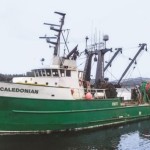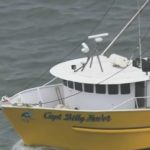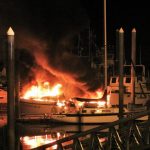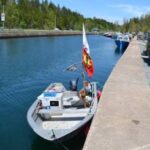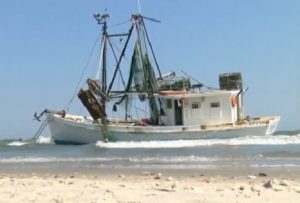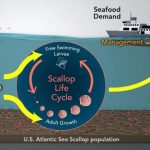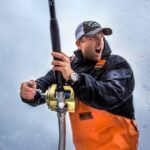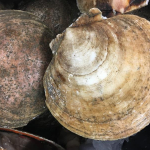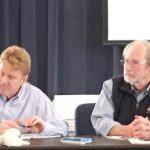Daily Archives: July 11, 2017
In Compliance! Federal government upholds NJ’s flounder regulations; 18-inch size limit affirmed
 The National Oceanic and Atmospheric Administration and U.S. Secretary of Commerce Wilbur Ross notified New Jersey officials Tuesday that the state’s 2017 flounder regulations were in compliance for management of the fishery stock and would not need to be changed. “We are very pleased that NOAA worked with us to understand our position that sound science and good long-term planning must drive decisions about the management of summer flounder, one of the state’s most important recreational and commercial fish species,” state Department of Environmental Protection Commissioner Bob Martin said Tuesday afternoon. “New Jersey is fully committed to employing science and public education to conserve a species that is critical to the fishing culture and economy of the state.” The decision follows months of contentious debate about the issue between New Jersey officials and the Atlantic State Marine Fisheries Commission, which had called for the state to implement a stricter 19-inch size limit. click here to read the story 19:43
The National Oceanic and Atmospheric Administration and U.S. Secretary of Commerce Wilbur Ross notified New Jersey officials Tuesday that the state’s 2017 flounder regulations were in compliance for management of the fishery stock and would not need to be changed. “We are very pleased that NOAA worked with us to understand our position that sound science and good long-term planning must drive decisions about the management of summer flounder, one of the state’s most important recreational and commercial fish species,” state Department of Environmental Protection Commissioner Bob Martin said Tuesday afternoon. “New Jersey is fully committed to employing science and public education to conserve a species that is critical to the fishing culture and economy of the state.” The decision follows months of contentious debate about the issue between New Jersey officials and the Atlantic State Marine Fisheries Commission, which had called for the state to implement a stricter 19-inch size limit. click here to read the story 19:43
Science Center for Marine Fisheries Announces New Members: Intershell International Corporation and The Town Dock/Seafreeze Ltd.
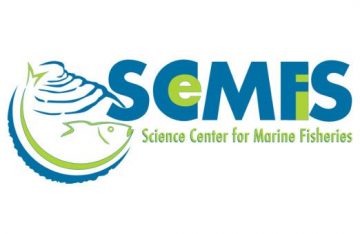 July 11, 2017, Gloucester Pt., VA – Intershell International Corporation, and The Town Dock/Seafreeze Ltd. have become the newest industry partners at the Science Center for Marine Fisheries (SCeMFiS). SCeMFiS is a partnership between fishing industry members, government agencies, non-profits, trade organizations, the Virginia Institute of Marine Science (VIMS), the University of Southern Mississippi (USM), and is part of the National Science Foundation’s Industry/University Cooperative Research Center program. Other partners include Atlantic Capes Fisheries, Bumble Bee Seafoods Inc., Garden State Seafood Association, LaMonica Fine Foods, Lund’s Fisheries Inc., National Fisheries Institute Clam Committee, National Fisheries Institute Scientific Monitoring Committee, National Marine Fisheries Service (NMFS) Northeast Fisheries Science Center, Omega Protein, Sea Watch International and Surfside Seafood Products. click here to read the press release Visit www.scemfis.org click here 17:14
July 11, 2017, Gloucester Pt., VA – Intershell International Corporation, and The Town Dock/Seafreeze Ltd. have become the newest industry partners at the Science Center for Marine Fisheries (SCeMFiS). SCeMFiS is a partnership between fishing industry members, government agencies, non-profits, trade organizations, the Virginia Institute of Marine Science (VIMS), the University of Southern Mississippi (USM), and is part of the National Science Foundation’s Industry/University Cooperative Research Center program. Other partners include Atlantic Capes Fisheries, Bumble Bee Seafoods Inc., Garden State Seafood Association, LaMonica Fine Foods, Lund’s Fisheries Inc., National Fisheries Institute Clam Committee, National Fisheries Institute Scientific Monitoring Committee, National Marine Fisheries Service (NMFS) Northeast Fisheries Science Center, Omega Protein, Sea Watch International and Surfside Seafood Products. click here to read the press release Visit www.scemfis.org click here 17:14
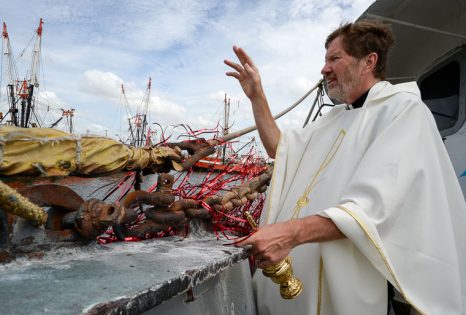
Brownsville: Shrimp season starts with shrimp boats lacking workers
The Texas shrimp industry faces an especially daunting challenge this year, a reality echoed in the fierceness of Father Mark Watters’ blessing-of-the-fleet sermon Monday at the Brownsville Shrimp Basin. It was Watters’ 12th year blessing the Brownsville-Port Isabel shrimp fleet, though it’s doubtful he has ever raised the roof like he did Monday with a 25-minute pep talk that started quietly before building to a shouting crescendo, Watters promising the few dozen assembled that “Jesus is in the mountain-moving business.” He didn’t mince words when citing the difficulties the fleet faces this year, namely, a dire shortage of workers from Mexico. The industry is fighting a misperception that it would rather hire Mexican H-2B visa workers than U.S. workers because they’re cheaper, Hance said, though the truth is that finding Americans to crew shrimp boats is practically impossible despite the industry’s best efforts. click here to read the story 12:58
Campobello Island mourns loss of fisherman originally from Chester who freed dozens of entangled whales
 A small island community in New Brunswick is mourning the loss of a fisherman who friends say was killed moments after freeing a whale that was entangled in fishing line. Mackie Green of the Campobello Whale Rescue Team said Joe Howlett was on board a Fisheries and Oceans Canada rib vessel off Shippagan on Monday to help cut heavy lines from a large whale. Green was not on the boat but says he was told the 59-year-old lobster fisherman, who founded the rescue team with Green in 2002, was hit by the whale just after it was cut free and beginning to swim away. A Fisheries and Oceans Canada statement late Monday said only that someone was killed on board one of its vessels and would not provide any details out of respect for family members. click here to read the rest 12:00
A small island community in New Brunswick is mourning the loss of a fisherman who friends say was killed moments after freeing a whale that was entangled in fishing line. Mackie Green of the Campobello Whale Rescue Team said Joe Howlett was on board a Fisheries and Oceans Canada rib vessel off Shippagan on Monday to help cut heavy lines from a large whale. Green was not on the boat but says he was told the 59-year-old lobster fisherman, who founded the rescue team with Green in 2002, was hit by the whale just after it was cut free and beginning to swim away. A Fisheries and Oceans Canada statement late Monday said only that someone was killed on board one of its vessels and would not provide any details out of respect for family members. click here to read the rest 12:00
‘Everybody knew Joe Howlett and everybody respected Joe Howlett,’ says Mayor Stephen Smart – “There’s only 850 people here on Campobello Island now and Joe was a very lively character, he had a great sense of humour. Everybody knew Joe Howlett and everybody respected Joe Howlett,” said Stephen Smart, mayor of Campobello Island, which is located in southwestern New Brunswick near the U.S. border. click here to read the story
The price to pay for spearing 320 spiny lobsters was a trip to jail Sunday
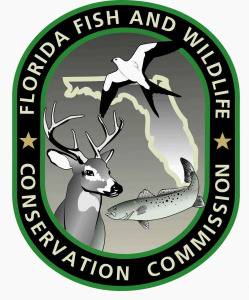 The price to pay for spearing 320 spiny lobsters was a trip to jail Sunday — and hundreds of charges for seven out-of-state men. The men, who were pulled over in a rented boat on the oceanside of the Vaca Cut Bridge around 4:30 p.m. by Florida Fish and Wildlife Conservation Commission officers, also had four out-of-season stone crab claws and eight fish fillets on the boat, according to FWC spokesman Officer Bobby Dube. On the boat was a bag containing 137 out-of-season wrung spiny lobster tails — 117 of which were undersized — the stone crab claws and fish, Dube said. click here to read the story 11:37
The price to pay for spearing 320 spiny lobsters was a trip to jail Sunday — and hundreds of charges for seven out-of-state men. The men, who were pulled over in a rented boat on the oceanside of the Vaca Cut Bridge around 4:30 p.m. by Florida Fish and Wildlife Conservation Commission officers, also had four out-of-season stone crab claws and eight fish fillets on the boat, according to FWC spokesman Officer Bobby Dube. On the boat was a bag containing 137 out-of-season wrung spiny lobster tails — 117 of which were undersized — the stone crab claws and fish, Dube said. click here to read the story 11:37
Letter: We must work together to preserve fishery, industry – Richard Beal, Gloucester
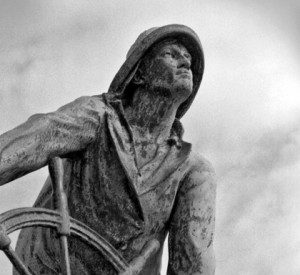 When I started fishing, everywhere you went you could see boats. They were of all types and sizes, domestic and foreign. There were no regulations. The only limitation on you was how hard you could physically work. It was a free-for-all, the Wild West revisited. Now I go fishing days and often don’t see another commercial fishing boat. It’s been my generation of fishermen that has bridged the gap from what was to what is. From an unregulated, volume-based industry to one that is highly regulated and quality oriented. I believe there has been more changes in my lifetime than in all of the industries prior history. click here to read the letter 09:48
When I started fishing, everywhere you went you could see boats. They were of all types and sizes, domestic and foreign. There were no regulations. The only limitation on you was how hard you could physically work. It was a free-for-all, the Wild West revisited. Now I go fishing days and often don’t see another commercial fishing boat. It’s been my generation of fishermen that has bridged the gap from what was to what is. From an unregulated, volume-based industry to one that is highly regulated and quality oriented. I believe there has been more changes in my lifetime than in all of the industries prior history. click here to read the letter 09:48
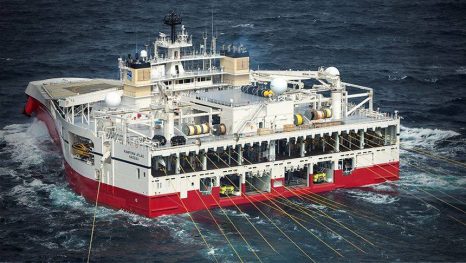
Fisheries groups upset over seismic testing approval, may have ‘incredible impact’ on marine environment
Just a few months after DFO cut crab quotas, now the oil and gas industry may be interfering with the livelihoods of harvesters, according to fisheries unions. The Canada-Newfoundland and Labrador Petroleum Board (C-NLOPB) has approved offshore seismic testing to take place in prime fishing areas on the Grand Banks. The board approved the request from Multi Klient Invest AS (MKI) for three-dimensional seismic testing in two areas from mid-July to mid-October and from mid-July to the end of August. The Fish, Food and Allied Workers Union (FFAW) issued a press release on Friday, calling on the petroleum board to reconsider its decision.,,, Ryan Cleary wrote the C-NLOPB at the end of June, asking to suspend seismic testing in order to study its impact on marine life. click here to read the story 08:50
Time is running out to protect the Atlantic coast from Seismic Testing for oil exploration
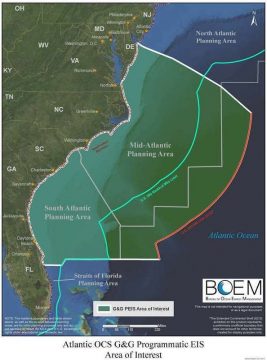 President Trump recently proclaimed that his administration is seeking “American energy dominance.” The reality is we’re already there. The United States produces more natural gas and oil than any other nation. We do import about 25% of our oil needs mostly from Canada and Mexico. However, that’s only because we export about one million gallons a week of the type of domestically produced oil we don’t want. The U.S. is beholding to no other country for our energy security.,,, The government estimates that up to 138,000 whales and dolphins could be injured or harassed if seismic airgun blasting was allowed in the Atlantic.,,, The government doesn’t even try to estimate the number of fish and invertebrates killed or harassed due to seismic airgun blasting. Ironically, in spite of its name the federal agency that approves applications for seismic testing, the National Marine Fisheries Service, requires absolutely no procedures to reduce the destructive impact of airguns on fish and invertebrates like squid. click here to read the op-ed 08:15
President Trump recently proclaimed that his administration is seeking “American energy dominance.” The reality is we’re already there. The United States produces more natural gas and oil than any other nation. We do import about 25% of our oil needs mostly from Canada and Mexico. However, that’s only because we export about one million gallons a week of the type of domestically produced oil we don’t want. The U.S. is beholding to no other country for our energy security.,,, The government estimates that up to 138,000 whales and dolphins could be injured or harassed if seismic airgun blasting was allowed in the Atlantic.,,, The government doesn’t even try to estimate the number of fish and invertebrates killed or harassed due to seismic airgun blasting. Ironically, in spite of its name the federal agency that approves applications for seismic testing, the National Marine Fisheries Service, requires absolutely no procedures to reduce the destructive impact of airguns on fish and invertebrates like squid. click here to read the op-ed 08:15


































